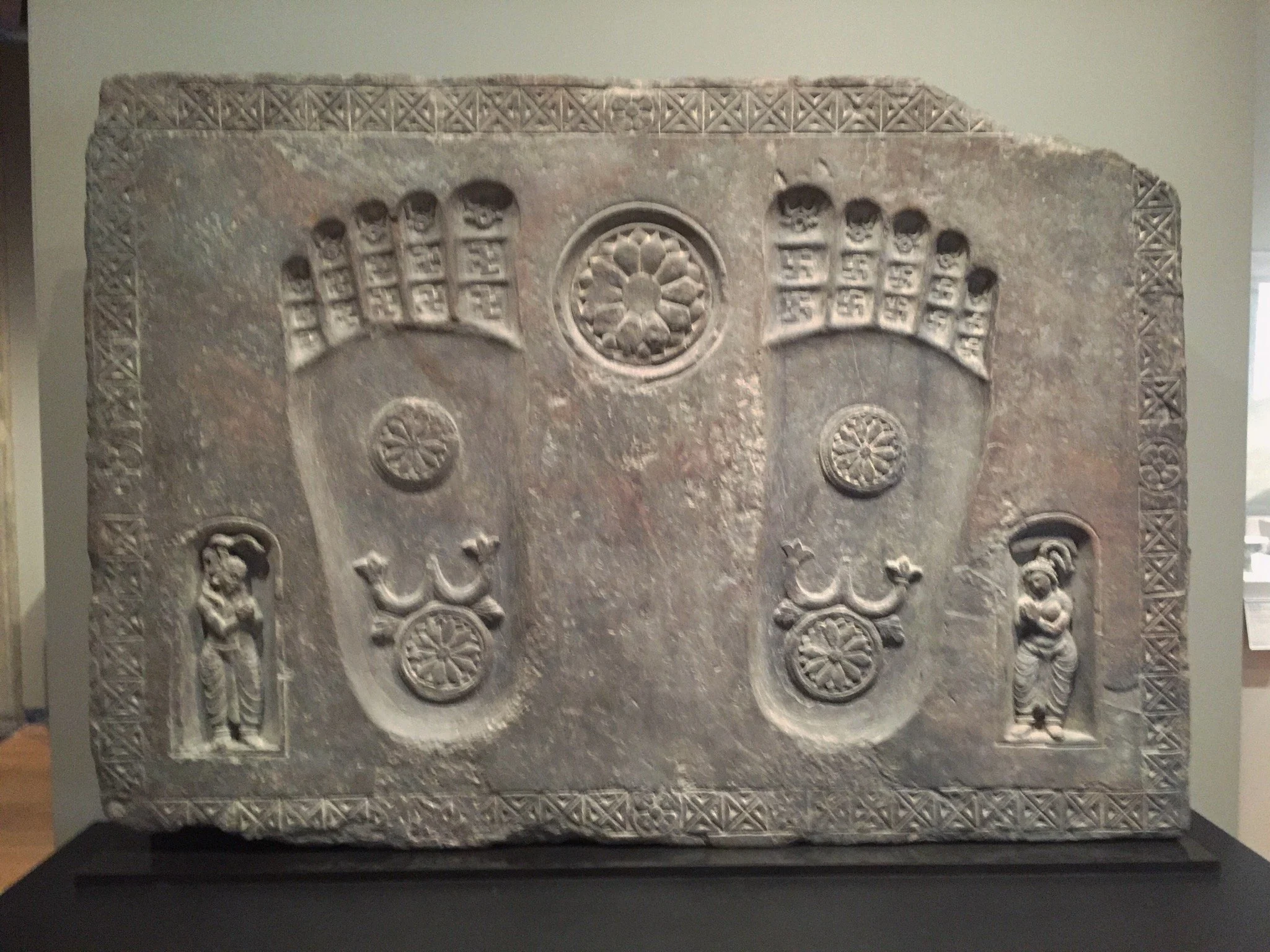Ananda, likely unaware of it, is an archetype that shows up in several religions: the faithful, but weak follower of the One, who shares a bond with him no other disciple does, but one who nevertheless struggles not only with that bond, but with completely surrendering to the enlightenment he desperately seeks. Ananda, in other words, is us, that “human, all-too-human” spiritual worrier.
His time spent in old age during the last days of the life of the Buddha are moving, fearful, frustrating, compassionate, and ultimately heroic. While that process is not an ideal one for attaining enlightenment, it is none the less one very familiar to a lot of seekers. Although hope is no substitute for direct action, Ananda’s story in those late days do give hope to practitioners like me, who certainly have been lost and confused in the past, and are still more than capable of misunderstanding what is right in front of us.
The need of courage to fully realize what we seek is one of the more poignant spiritual paradoxes. That the Buddha teaches that we already own what we seek—and therefore there is really nothing to seek for—is cold comfort, until it begins to make sense.
In the Dhammapada, in Verse 152, the Buddha refers to old age mostly as a time of regret for those who have not in their youth developed some spiritual mettle. He says:
Just as the ox grows old
so this man of little learning:
his fleshiness increases,
his wisdom doesn’t grow.
To make such a detailed note of the time Ananda and the Buddha spend together in the latter’s final days in some ways completes the Buddha’s views of old age that began with his first walk outside of his family’s influence. It reminds us that while old age may be a time of decay, diminishment and maybe regret, it is also, like any other time, a moment for enlightenment. Every moment is THE moment of change. That Ananda gave passionately to the Sangha despite his fears, is also a lesson for us. We can still help, still be useful, even if we have not fully “gotten it.”
